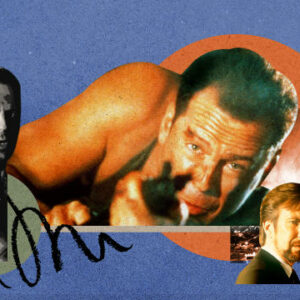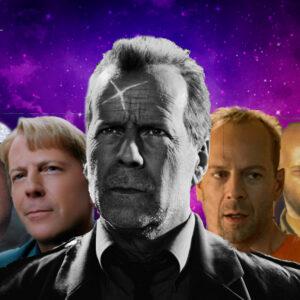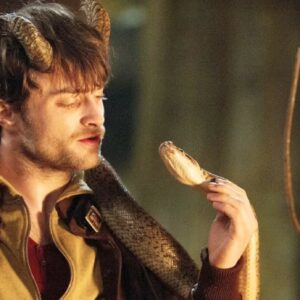In 1988, director John McTiernan’s Die Hard became an instant cultural phenomenon, defining a new era for action films. Amidst a decade of brash, invincible heroes such as Arnold Schwarzenegger’s Terminator and Sylvester Stallone’s Rambo, Die Hard introduced a different kind of action hero—one who was flawed, vulnerable, and deeply human. At the center of this transformation was Bruce Willis’s portrayal of John McClane, an ordinary New York cop caught in extraordinary circumstances. As the movie went on to become a landmark in action cinema, McClane’s everyman persona broke the mold of what audiences expected from their heroes, offering a refreshing and more complex alternative.
Bruce Willis’s Role as John McClane: A New Kind of Action Hero
When Bruce Willis was cast as the protagonist of Die Hard, he was a relatively unknown TV actor, more familiar to viewers for his role in the sitcom Moonlighting than as an action star. However, Willis’s portrayal of John McClane not only transformed his career but also redefined what an action hero could be. Unlike the muscle-bound, indestructible protagonists of the 1980s action films, McClane was a relatable, vulnerable, and, at times, flawed individual. He didn’t fit the typical mold of the bulletproof, stoic, and physically invincible action hero. Instead, McClane was a regular guy who found himself in an extraordinary situation, and his imperfections made him even more heroic.
This departure from the traditional action hero archetype was refreshing. McClane wasn’t a superhero or a soldier; he was an everyman. His heroism didn’t stem from superhuman strength or tactical genius but from his determination, resourcefulness, and ability to confront both external threats and his own internal struggles. The vulnerability he showed, particularly in the face of real human fears—fear for his life, fear of failure, and fear of losing his family—added a layer of complexity that was lacking in many of the decade’s action protagonists.
1. The Everyman Hero: Subverting Expectations
John McClane was a refreshing departure from the typical larger-than-life, invincible action heroes of the 1980s. He wasn’t a superhuman force of nature; he was simply a regular cop who was just as scared and vulnerable as anyone else in a life-threatening situation. This vulnerability was one of the key elements that made McClane a more relatable hero than his predecessors.
Unlike characters such as Schwarzenegger’s Commando or Stallone’s Rambo, McClane didn’t have a flawless set of skills or a seemingly endless supply of ammunition and strength. Instead, he had to rely on quick thinking, his street smarts, and sheer grit to survive. He wasn’t prepared for the battle against a group of terrorists who took over the Nakatomi Plaza. He wasn’t a well-trained soldier; he was a beat cop who just happened to be in the wrong place at the wrong time. Yet, McClane’s imperfection became the very thing that made him heroic.
His physical limitations—his injuries, exhaustion, and lack of combat training—created a vulnerability that was uncommon for action heroes of the time. At one point, McClane is physically bruised, bleeding, and emotionally drained, but he doesn’t stop. His flaws and vulnerabilities make his heroism all the more impressive because they demonstrate that even an ordinary man can rise to the occasion in extraordinary circumstances.
2. Bruce Willis’s Unique Acting Style: The Balance of Humor and Grit
One of the defining characteristics of Bruce Willis’s portrayal of John McClane is the unique balance between action and humor. McClane’s sarcastic, deadpan humor became a signature element of the character, providing levity during tense, high-stakes moments. Willis’s ability to seamlessly weave humor into the action sequences not only made McClane more relatable but also set him apart from the more stoic action heroes of the era.
For example, during some of the film’s most intense moments—such as when McClane is outnumbered or injured—he delivers memorable lines with a dry, witty tone. “Yippee-ki-yay, motherfucker” became one of the most iconic lines in movie history, not only because of its bravado but also because it captured the essence of McClane’s defiance in the face of danger. It was an expression of his will to survive, but it also highlighted the character’s irreverence and humor.
This deadpan humor wasn’t just comic relief; it also served as a coping mechanism for McClane. His humor, often aimed at the terrorists, is an indication of his resilience in the face of fear and uncertainty. Willis’s unique ability to balance the physicality of action with witty, irreverent dialogue became one of the defining elements of McClane’s character and helped solidify his place as a new kind of action hero.
3. The Symbolism of McClane’s Struggle: Man vs. Himself
While McClane’s physical battle against the terrorists is the central narrative of Die Hard, there is a deeper, more symbolic struggle taking place within him. As the film progresses, it becomes clear that McClane is not only battling the external forces of Hans Gruber and his team of terrorists but also grappling with personal demons, particularly his troubled marriage to his wife, Holly.
McClane’s struggle is as much internal as it is external. His internal battle is one of redemption. At the beginning of the film, McClane is dealing with feelings of inadequacy and guilt over his failed marriage. His relationship with Holly is strained, and he is emotionally distant. As the story unfolds, McClane’s determination to save the hostages and stop the terrorists becomes a form of redemption. In the end, his heroism and sacrifice in the face of danger help him reconcile with his wife, symbolizing a personal victory over his own doubts and fears.
This internal conflict between McClane’s desire to prove himself as a hero and his need to fix his personal life creates a compelling emotional core to the film. The external battle with the terrorists becomes a metaphor for McClane’s internal battle with himself—his past mistakes, his guilt, and his need for redemption.
4. Legacy and Impact on Action Cinema: Redefining the Action Hero
McClane’s everyman heroism had a lasting impact on the genre. Die Hard not only redefined the action film but also reshaped how audiences viewed masculinity in cinema. The traditional action hero was often a one-dimensional, invincible figure. McClane, on the other hand, was a human being who made mistakes, faced personal struggles, and showed vulnerability, making him a more nuanced and relatable figure.
The success of Die Hard influenced the action genre for years to come. McClane’s blend of vulnerability, humor, and physicality set the template for a new wave of action heroes. Characters like Martin Riggs from Lethal Weapon, and even later iterations of characters like Jason Bourne, were all influenced by McClane’s more human and emotionally complex persona.
Culturally, McClane became a symbol of resilience and perseverance. His ability to keep fighting despite overwhelming odds resonated with audiences, making him a hero not just in the fictional world of Die Hard but also in real life. McClane’s grit and determination became synonymous with personal resilience, inspiring countless individuals who saw themselves reflected in his struggles.
The Enduring Appeal of John McClane
Even years after the original Die Hard release, the character of John McClane remains one of the most beloved action heroes in film history. Bruce Willis’s portrayal of the character transcended the confines of the Die Hard franchise, becoming a cultural touchstone for how to portray an action hero with depth, humor, and vulnerability. The qualities that made McClane stand out—his imperfection, his humor, his emotional complexity—continue to resonate with audiences, making him a timeless character whose appeal only grows stronger with each passing year.
Conclusion: The Lasting Legacy of John McClane
In conclusion, Bruce Willis’s portrayal of John McClane in Die Hard is a masterclass in balancing action, humor, and emotional depth. McClane’s journey from a vulnerable, imperfect man to a self-sacrificial hero is a testament to the power of human resilience. Unlike the traditional action hero, McClane’s struggles—both internal and external—are what make him truly heroic.
As Die Hard continues to be a touchstone in action cinema, the legacy of John McClane remains a shining example of how a simple, everyman hero can have a profound impact on audiences. The lasting appeal of McClane—and by extension, Bruce Willis—speaks to the power of human connection in the face of adversity. Die Hard is not just a holiday action movie; it is a film about redemption, sacrifice, and the enduring strength of the human spirit.





